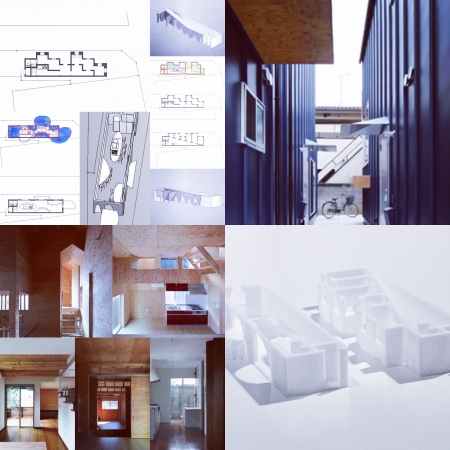建築が応答できれば
選択することを建築的に考えてみると、人は空間の中で常に何かを選択していると思った。そして、その選択には建築が起因しないものも当然あるが、空間の中で行われているならば全く建築の影響を受けないことは無いだろうとも思った。
空間の中にある選択肢から人が選択するという構図になるのが一般的だと思うが、人がその選択をする時の基準には何があるのだろうかと考えてみると、大概はその人の中にある基準が優先され、建築側には基準がない場合が多いだろうと思い、ただ、それは当たり前かもしれないが、そうすると、建築は何でもよく、建築は箱でよく、容れ物でよく、ただの箱で嫌ならばカッコいい箱にすればよく、人によって決まることになる。
それでも、人間主義の建築でいいのだが、人の中に選択の基準があるにせよ、その時に建築が応答できれば、人と建築の関係性から建築を紡ぎ出すことができ、そうすれば、建築は何でもよくなく、唯一無二のものになる。
「応答」というと建築を擬人化しているようだが、実際には建築は動くことができないので、その時に人が建築から影響を受けるということである。だから、建築が人に与える影響を手法も含めて考えることが何でもよくない建築をつくることになる。
"If the architecture can respond"
Architecturally thinking about making choices, I thought that people were always choosing something in space. And, of course, there are some choices that are not attributed to architecture, but I also thought that if they were done in space, they would not be completely unaffected by architecture.
I think it's common for people to choose from the choices in space, but when you think about what the criteria are for people to make that choice, it's usually that person. I think that the standards inside are prioritized and there are often no standards on the building side, but that may be obvious, but then the building can be anything, the building can be a box, a container, If you don't like a simple box, you can make it a cool box, and it depends on the person.
Still, humanistic architecture is fine, but even if there are criteria for selection in people, if architecture can respond at that time, it can be spun out from the relationship between people and architecture, and then architecture. Is not good at all, it will be unique.
"Response" seems to be anthropomorphic to architecture, but in reality, architecture cannot move, so people are influenced by architecture at that time. Therefore, it is not good to think about the influence of architecture on people, including methods.


